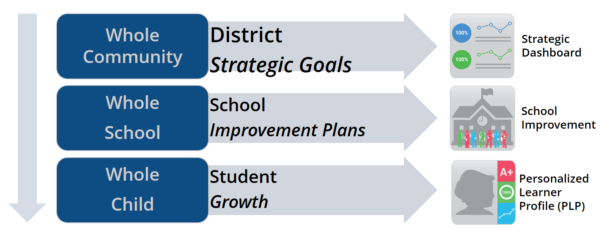John Gatta, Ph.D. is Chief Executive Officer (CEO) of ECRA Group. In addition to his responsibilities at ECRA Group, John is an Assistant Professor of statistics and predictive analytics at Northwestern University, where he also serves as Director of Research. His unique blend of academic, technical, management and leadership experience gives him keen insights into how schools can best adopt research and analytics as a core strategy for quality improvement. As CEO of ECRA Group, he also serves as chief architect of ECRA's analytic infrastructure related to data structures, data warehousing, statistical algorithms and reporting.
I’m getting a lot of questions related to linear regression and how the Illinois State Board of Education (ISBE) may implement linear regression to measure student growth under the new school improvement and accountability system. As a result, I decided to synthesize information as it becomes available.
Measuring student success requires moving beyond standardized test scores toward a multidimensional and personalized set of indicators that collectively capture a more modern definition of readiness, empowering students to take ownership of their learning by aligning competencies, interests, motivations and aspirations.
SCHOOL DISTRICT LEADERS face challenges when they attempt to document the relationship between costs and quality. Return on investment analysis is motivated by the strategic intentions of school boards and leadership to increase quality and optimize resource allocation. No Child Left Behind, Race to the Top and state accountability laws have shaped a definition of…
Prior to the enactment of the federal No Child Left Behind ACT (NCLB) school boards and the broader school community defined the superintendency narrowly by the leader’s ability to manage fiscal, physical, and personnel resources. NCLB’s emphasis on academic achievement and school accountability began shaping a broader definition of school leadership that was far more…
Improving student performance is more dramatic when school leaders employ systemic analytics. Despite continued emphasis on systemic approaches to school improvement, schools struggle to use data and information in a manner consistent with systems thinking. Systemic thinking requires an holistic approach, one that focuses on the total school system by examining and understanding the interrelationships…






